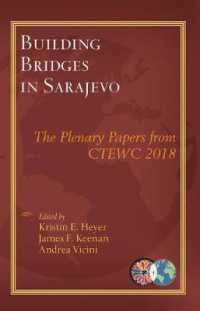Full Description
Educational Transitions in Post-Revolutionary Spaces explores the transformation of the education system in Tunisia following the Jasmine Revolution, the first of a wave of revolutions known as the Arab Spring.
The authors provide a detailed account of how Tunisia's robust education system shaped and sparked the conflict as educated youth became disgruntled with their economic conditions. Exploring themes such as radicalization, gender, activism and social media, the chapters map out the steps occurring during transitions from authoritarian rule to democracy.
Educational Transitions in Post-Revolutionary Spaces traces the origins of the conflict and revolution in societal issues, including unemployment, inequality and poverty, and explores how Islam and security influenced the transition. The book not only offers a thorough understanding of the role of youth in the revolution and how they were shaped by Tunisia's educational system. Crucially, it provides a comprehensive understating of theoretical and methodological insights needed to study educational transitions in other post-revolutionary contexts.
Contents
Introduction
1. The Politics of Educational Transitions: Theoretical Considerations
2. Context and Spaces: The Tunisian Case
Part I: Pre-Revolution
3. Pre-revolution Educational Spaces: Secularism and Islam
4. Labor Mobility and Labor Market Access
5. Gender: Radicalization and Education
Part II: Post-Revolution
6. Security: Post-revolution Educational Disruptions
7. Freedom, Social Media and Activism
Conclusion
Glossary
Bibliography
Index







